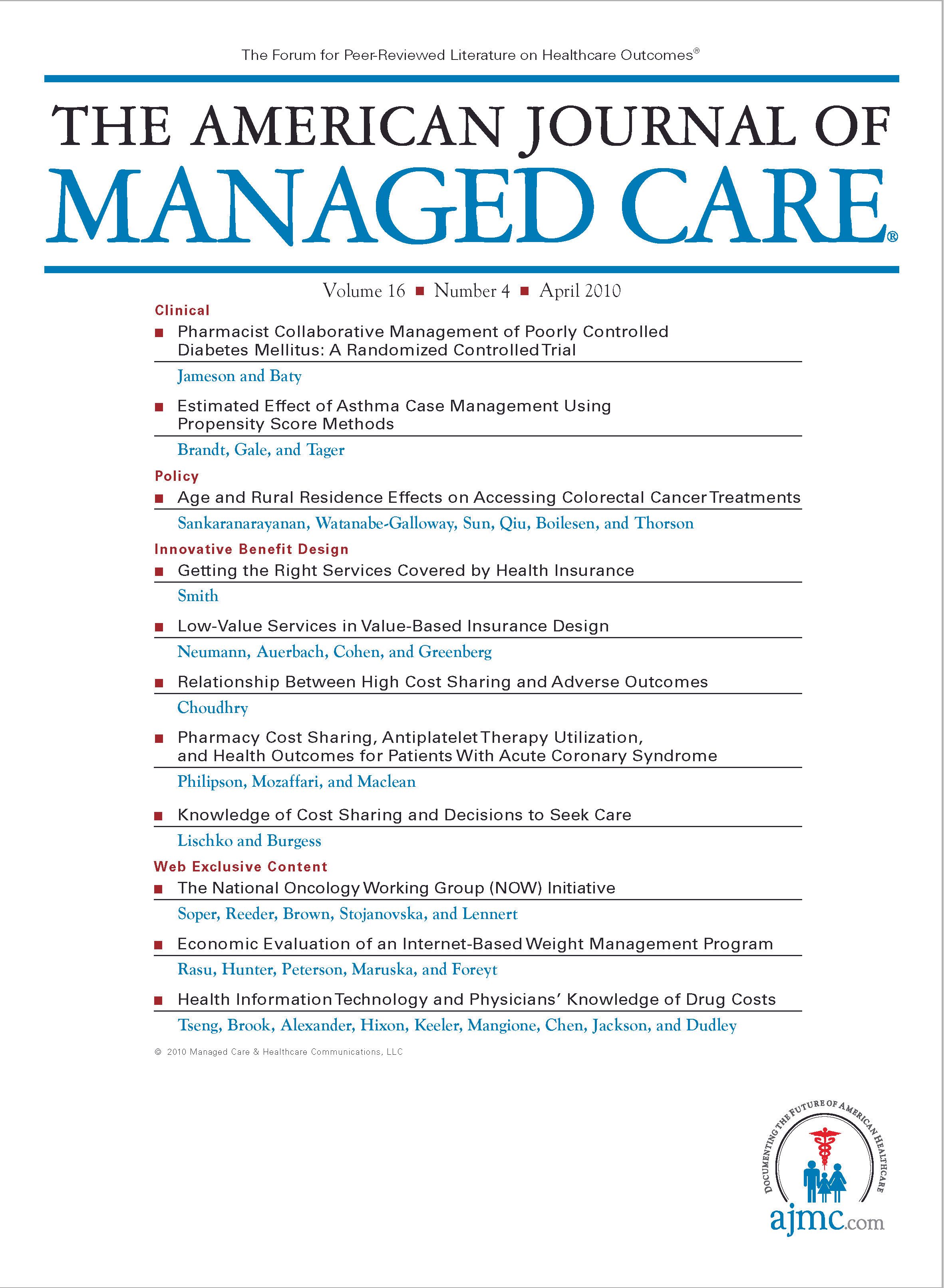- Center on Health Equity & Access
- Clinical
- Health Care Cost
- Health Care Delivery
- Insurance
- Policy
- Technology
- Value-Based Care
Knowledge of Cost Sharing and Decisions to Seek Care
Educating employees about their cost-sharing responsibilities could lead to more efficient use of the healthcare system.
Objectives: To assess knowledge and understanding of cost-sharing responsibilities and whether that knowledge and understanding influence actual and perceived use of healthcare services.
Study Design: A 3000-person random sample was drawn from a state employee database in Massachusetts.
Methods: Survey responses and claims analyses were used to assess knowledge of cost sharing and healthcare utilization over a 3-year study period. Trend models and logistic regression were used.
Results: Nearly two-thirds of respondents (62%) accurately recalled the percentage of premium that they paid; 67% recalled the correct copayment for a doctor’s visit. Younger, less educated, and lower-income employees recalled their copayment more accurately than older, more educated, higher-income colleagues. Half of the respondents accurately reported the copayment amount for an emergency department visit. Greater knowledge of overall healthcare costs was positively associated with higher utilization of office visits (P <.01). Knowledge of specific office visit and emergency department copayments had no significant relationship with utilization. Self-reported delays and reductions in utilization were much more pronounced than the actual claims data indicated.
Conclusions: Employees were reasonably well informed about their cost-sharing responsibilities. Knowledge of costs was associated with higher office visit utilization during the study period. Respondents who were more knowledgeable about their specific copayments for office visits and emergency department visits also were more likely to behave in what appeared to be a more cost-efficient manner, with more office visits and fewer emergency department visits.
(Am J Manag Care. 2010;16(4):298-304)

Quality of Life: The Pending Outcome in Idiopathic Pulmonary Fibrosis
February 6th 2026Because evidence gaps in idiopathic pulmonary fibrosis research hinder demonstration of antifibrotic therapies’ impact on patient quality of life (QOL), integrating validated health-related QOL measures into trials is urgently needed.
Read More
Building Trust: Public Priorities for Health Care AI Labeling
January 27th 2026A Michigan-based deliberative study found strong public support for patient-informed artificial intelligence (AI) labeling in health care, emphasizing transparency, privacy, equity, and safety to build trust.
Read More
Ambient AI Tool Adoption in US Hospitals and Associated Factors
January 27th 2026Nearly two-thirds of hospitals using Epic have adopted ambient artificial intelligence (AI), with higher uptake among larger, not-for-profit hospitals and those with higher workload and stronger financial performance.
Read More
Motivating and Enabling Factors Supporting Targeted Improvements to Hospital-SNF Transitions
January 26th 2026Skilled nursing facilities (SNFs) with a high volume of referred patients with Alzheimer disease and related dementias may work harder to manage care transitions with less availability of resources that enable high-quality handoffs.
Read More

